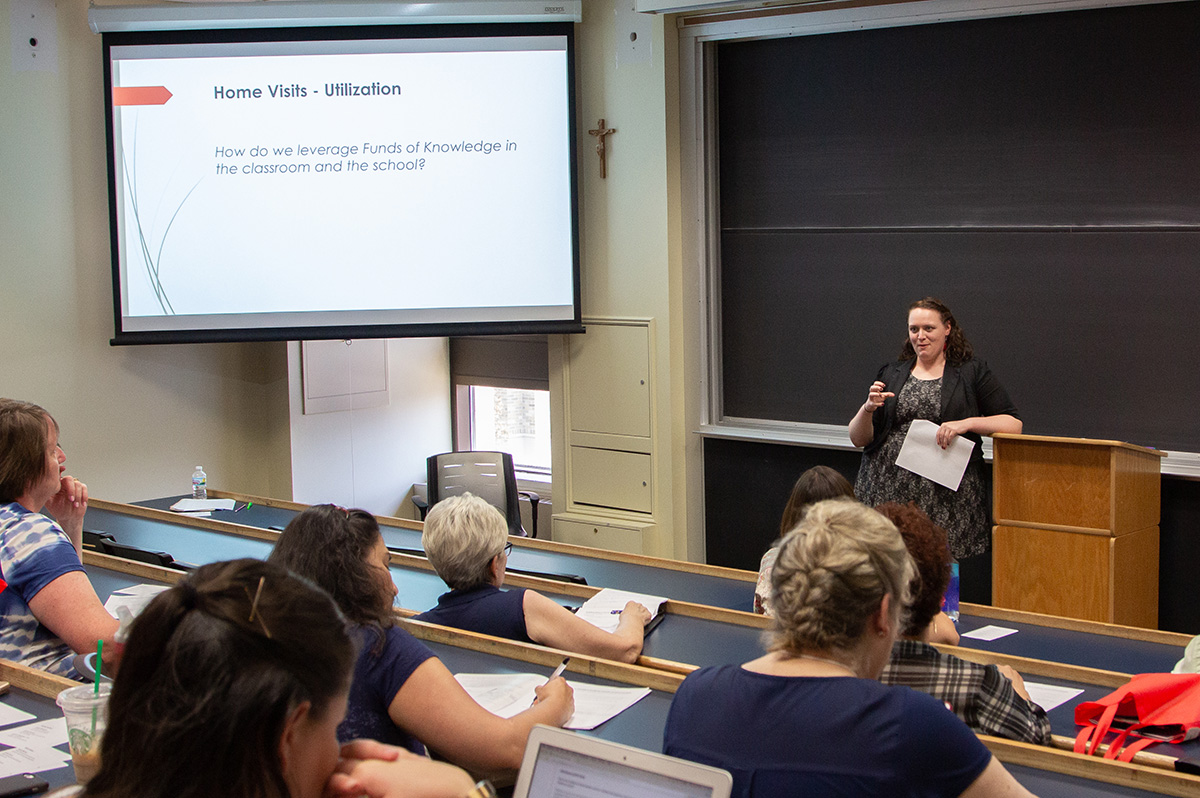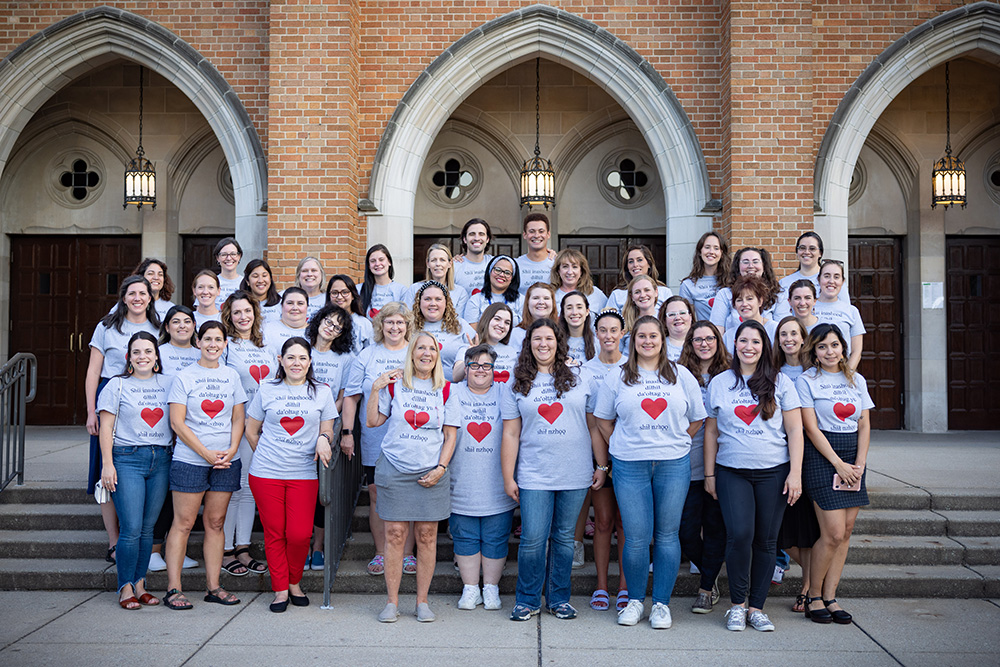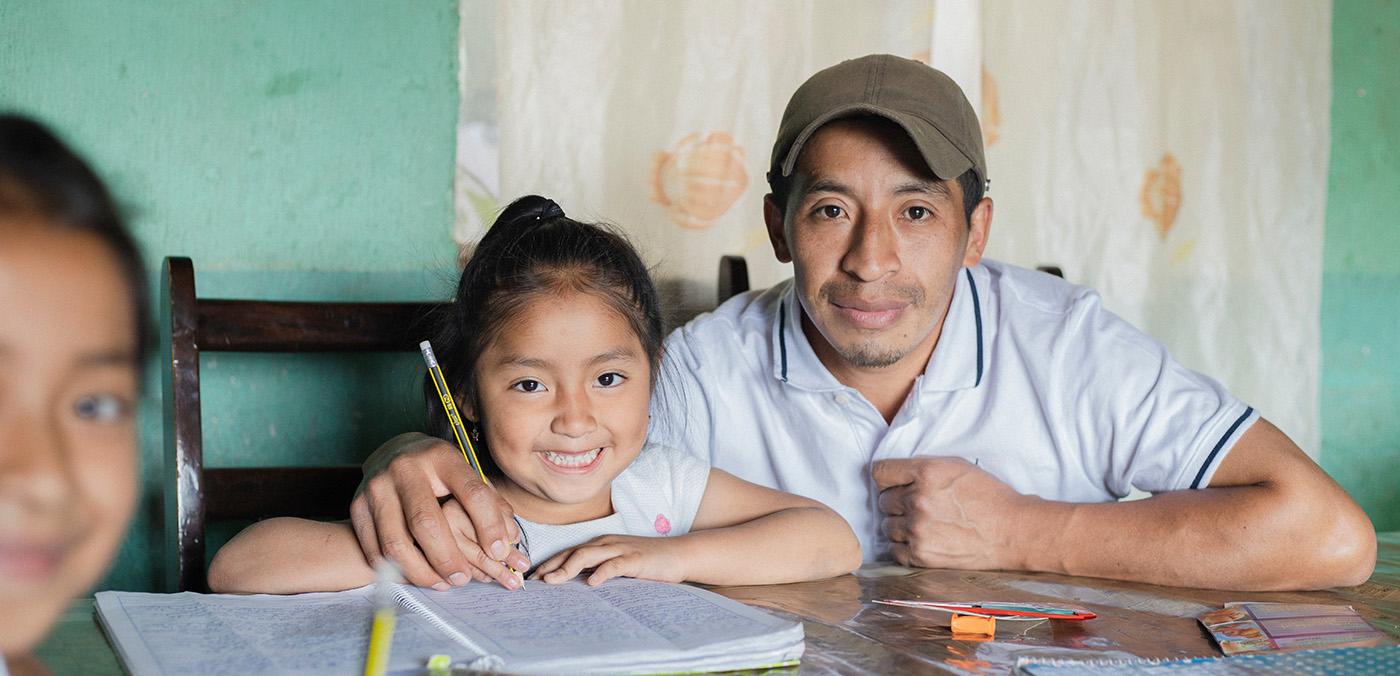As educators, we know that students carry much more with them to school than their backpacks and school supplies. Their home lives impact their experiences of school, which can bring both joys and challenges to the classroom. We also know that home language, home culture, and the experiences of home can be tremendous assets to our classrooms and schools. If you had a glimpse into students’ home lives, could you better tailor your teaching to their needs?
“As educators, we’re called to make schools a second home and a place where students’ gifts and talents are shared. Parents are the first educators of their children, so it’s all the more important that we embrace and integrate their experiences and their gifts into our classrooms.”
Every year, educators in the ENL Hernandez Fellows program have the opportunity to get this glimpse. As part of the six graduate-level courses they take to pursue their ENL certification, Hernandez Fellows conduct a home visit.
For many, a home visit is a new experience. For some, like current Hernandez Fellow Nicki Brainard, the experience itself is not new, but the purpose of the home visit is.
“In my experience as an administrator, I’ve done home visits before, but it has always been because there’s an attendance problem or another home issue that I was trying to help with,” says Brainard, the principal of St. Clement School in Cincinnati, Ohio. “As Hernandez Fellows, we take the perspective of funds of knowledge and we’re looking at what families bring to the table and how we can leverage that to better teach and serve our students.”
The concept of “funds of knowledge” is central to Sarah Rinn’s “Cultural Influences on Children’s Lives” course, the class in which the home visit is assigned.
“We focus on the culture of specific communities, families, and students, and how all of these cultures come together and interact within a school,” says Rinn. “A lot of my work is focused on students whose academic or behavioral needs are outside of the average scope, and the trust that I’m able to build between school and community and families is so critical. The course is all about building bridges between these stakeholders.”

Jenni Crain, a previous ENL Hernandez Fellow, has seen the impact of building these bridges. Now the principal of St. Adalbert Catholic School in South Bend, Crain conducted home visits for 10 years as a teacher at St. Adalbert Catholic School. She and her colleague Kristi Chrzan came up with a plan to visit every kindergarten student and any new first-grade students. Several years later, Crain is still seeing the positive impact the visits she did as a teacher have had on her relationships with students now that she’s principal.
“I’ve had home visits with most of the students who are at St. Adalbert now, fourth grade and up, and the students still talk about it,” says Crain. “For some families, we visited their homes for three or four children. The students recall the visits and they bring them up with such joy. I was having lunch with an eighth grader and she said, ‘Remember when you came to my house to visit my brother, Mrs. Crain, and the baby spilled lemonade all over you?’ It seems silly, but it’s important.”
As a principal, Brainard worried about visiting a family at home. “I was very apprehensive about it to be honest,” says Brainard. “Having someone from school, especially the principal, come to your house creates a layer of discomfort, I think, for me and definitely for the family.”
During Brainard’s home visit she and the family she visited were able to break through the discomfort and just have a conversation. “I chose a family with a mom who I had worked with a lot the previous year and who has multiple children at St. Clement,” says Brainard. “I asked the assistant principal, who is bilingual, to come with me to translate if needed, and we figured out a Saturday that worked for everybody. Going in, I thought that our visit would be about 30 minutes, but we sat in the kitchen and just talked and we were wrapping things up an hour and fifteen minutes later.”
Through the home visit, Brainard learned a lot about the family she visited. “Because of finances, the mom couldn’t go to Catholic school, so having the opportunity for her children to be at St. Clement is hugely important to her,” says Brainard. “Her children are in karate and volleyball and they’re doing different things outside of school because giving them the opportunity to be as well-rounded as possible is important to her.”

What Brainard learned from this one family is also impacting her approach to leading the St. Clement community as a whole. “When I became principal of St. Clement two years ago, I learned that we don’t have clubs and afterschool activities because transportation is an issue for families,” says Brainard. “What I’ve learned is that this is true for a number of our families, but it’s not true for all of them. We have families who want their children to have these opportunities but they don’t know how to ask us or they’re not going to ask us. We need to provide them with the opportunities and allow parents to say, ‘yes, we can do this’ or ‘no, we can’t.’”
As an ENL professor, Rinn gets a window into the perspective shift that Brainard and her ENL classmates are having after completing their home visits. “Many people wrote about the preconceived notions that they had before visiting a student’s home and how the reality in some cases was different from what they expected,” Rinn says. “Ultimately, what they see is a family that’s very caring, that’s deeply devoted to one another. The goal isn’t necessarily to make home visits a weekly practice, but it’s to see that what’s happening within homes and communities does connect with classrooms. We have to make those connections and position students, parents, and community members as experts in our classrooms.”
Katy Lichon, the director of the ENL program, emphasizes the importance of incorporating home language and culture into the classroom. “As educators, we’re called to make schools a second home and a place where students’ gifts and talents are shared,” she said. “Parents are the first educators of their children, so it’s all the more important that we embrace and integrate their experiences and their gifts into our classrooms.”
Applications to join the 18th cohort of ENL Hernandez Fellows are open now. For more information about the ENL Hernandez Fellows program, visit the ENL Hernandez Fellows website. Applications must be received no later than March 31, 2023 and applicants will be notified of acceptance in April.

